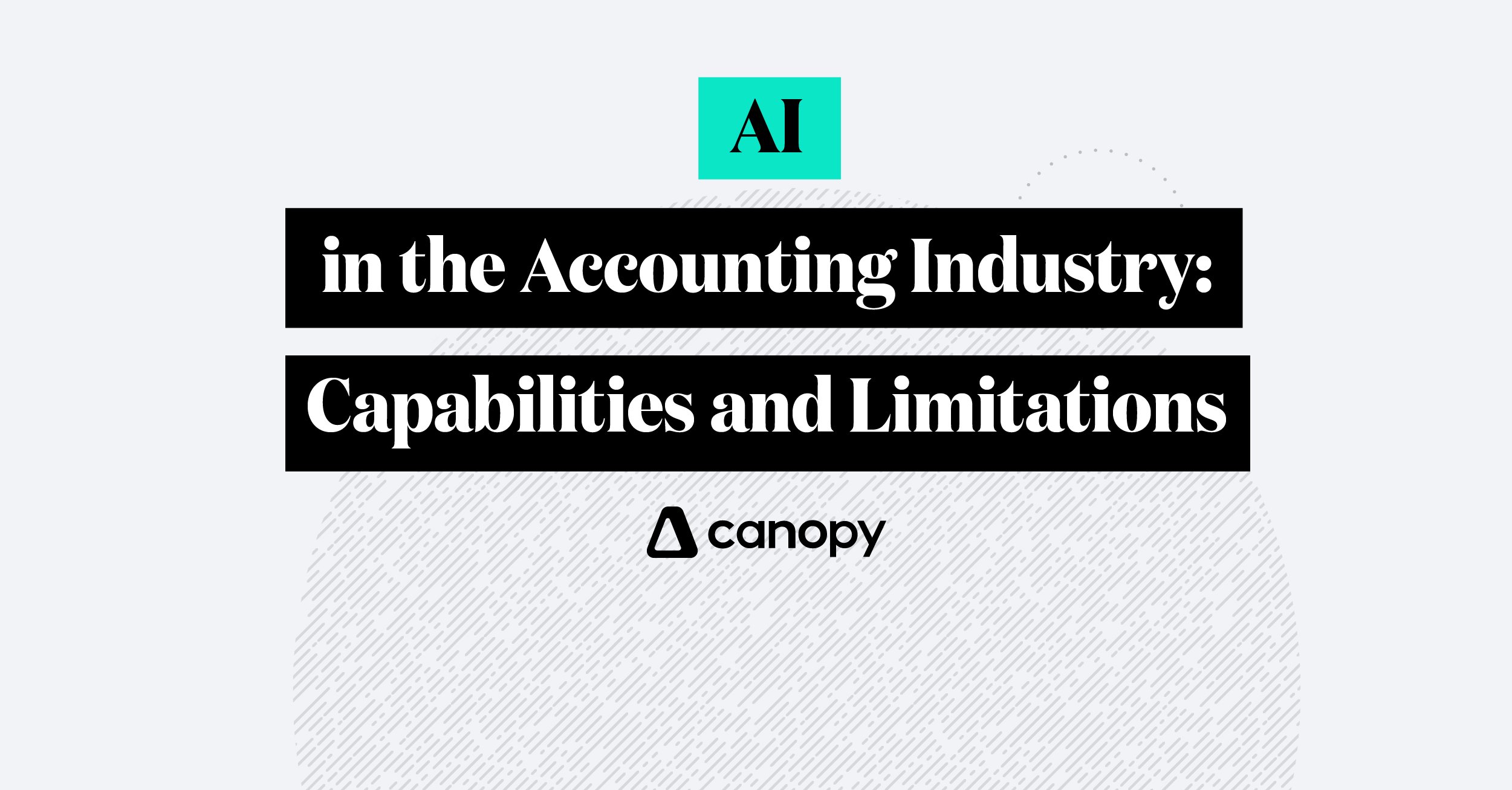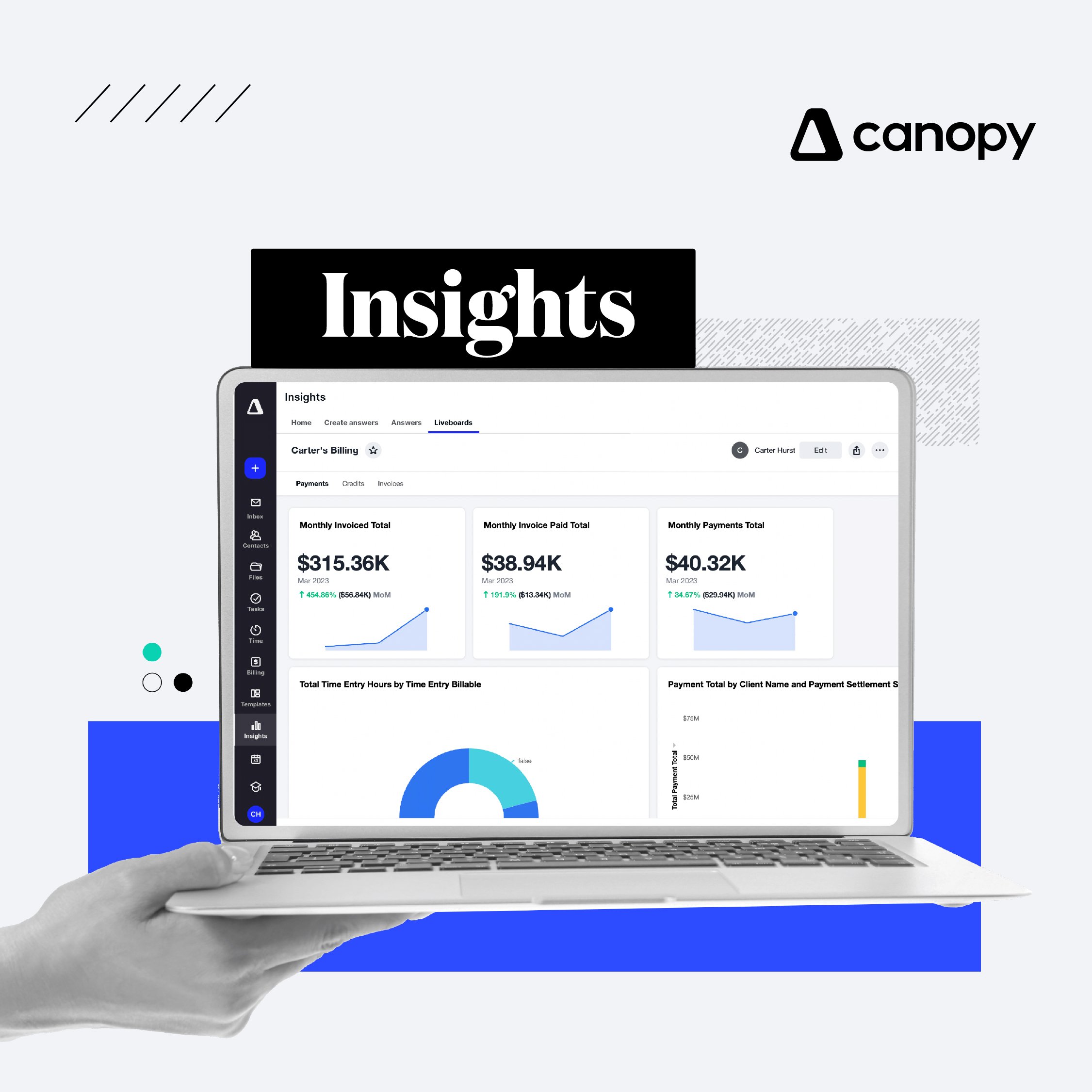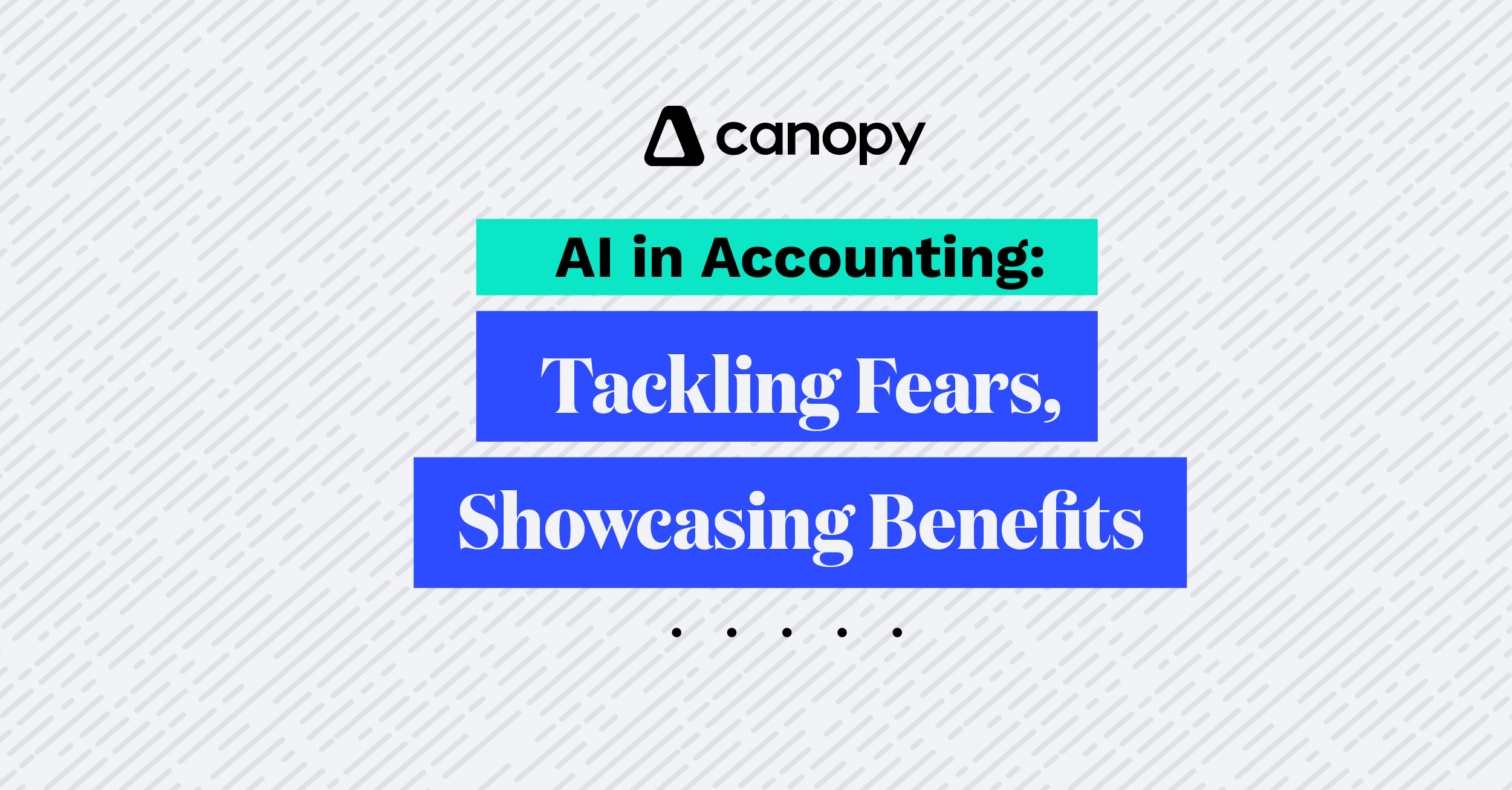Integrating Artificial Intelligence (AI) into the accounting sector has been a game-changer, offering unprecedented efficiency improvements and accuracy levels. However, while AI has significantly advanced, it’s essential to recognize its capabilities and limitations within this industry.
What is AI's Role in Accounting?
There are numerous benefits to using AI in accounting, and accounting firms are widely adopting it in their workflow to stay competitive and provide better quality service. Here are a few ways AI is being used by accounting professionals such as CPAs, bookkeepers, and tax professionals:
- Automate Routine Tasks: AI excels in automating repetitive and time-consuming tasks such as data entry, reconciliation, and transaction categorization. This speeds up the accounting processes and reduces human error, leading to more accurate financial records.
- Enhance Compliance and Fraud Detection: By analyzing vast amounts of data, AI can identify patterns and anomalies that may indicate fraudulent activities or non-compliance with financial regulations. This proactive approach helps businesses mitigate risks and avoid potential legal issues.
- Improve Financial Forecasting and Analysis: AI algorithms can process and analyze historical financial data to predict future trends. This capability allows accountants and financial analysts to provide more accurate forecasts and strategic insights for business planning and decision-making.
- Streamline Tax Preparation: AI can simplify the complex and often tedious tax preparation process. By analyzing tax codes and regulations, AI can help identify deductions and credits applicable to businesses or individuals, ensuring more efficient and optimized tax filings.
- Enhance Customer Service: Accounting firms can offer 24/7 customer service, answering queries and providing assistance with basic accounting tasks with the help of AI-powered chatbots and virtual assistants, thus improving client satisfaction.
Disadvantages of Using AI in Accounting
Despite its power, it’s important to understand that AI is still in its pioneer stage, and just like any new technology, it presents a few challenges to overcome. Here are a few that are vital in the accounting industry:
- Replace Human Judgment and Expertise: While AI can process and analyze data at an unprecedented scale, it cannot make nuanced judgments that require human experience, ethics, and intuition. Complex decision-making remains a domain where human accountants excel, especially in ambiguous situations.
- Understand Contextual Nuances: AI may need help understanding the context behind certain financial transactions or decisions. The subtleties of business operations, industry-specific practices, and cultural nuances often require human interpretation to ensure accurate accounting and compliance.
- Manage Complex Interpersonal Relationships: Building and maintaining client relationships are crucial in the accounting industry. AI lacks the emotional intelligence and personal touch to navigate and foster these relationships effectively.
- Adapt to Rapid Regulatory Changes: The legal and regulatory landscape in accounting and finance is constantly evolving. AI systems require updates and retraining to adapt to new regulations, a process that cannot happen instantaneously and often requires human intervention.
- Guarantee Absolute Security: Despite advancements in cybersecurity, AI systems are not immune to security vulnerabilities. Data breaches or malicious exploitation risk remains a concern that requires ongoing vigilance and human oversight.
AI has brought significant efficiencies and capabilities to the accounting industry, automating routine tasks, enhancing accuracy, and providing valuable insights. However, the role of human accountants remains irreplaceable, particularly in areas requiring judgment, ethical considerations, and interpersonal skills. As AI continues to evolve, its most effective use in accounting will likely be in a supportive role, augmenting the expertise and capabilities of human professionals rather than replacing them. The future of accounting lies in a balanced integration of AI and human expertise, leveraging the best of both worlds to advance the profession and serve clients more effectively.

Chris is a content manager for Canopy, joining the team with a combined eight years of experience as a copywriter, editor-in-chief, and content marketer. He's a skilled wordsmith and strategic thinker who shapes brand identity through compelling content and fosters a collaborative and innovative environment. With a passion for storytelling and a dedication to excellence, he is a driving force behind any company's success in content marketing. Champion of the Oxford comma.
READ MORE BY Chris






Get Our Latest Updates and News by Subscribing.
Join our email list for offers, and industry leading articles and content.